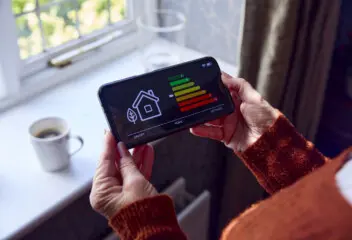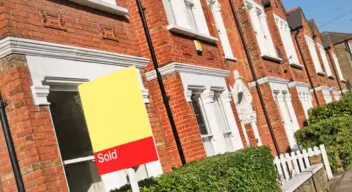The new ECO+ scheme which was announced this week – and will launch in the Spring – aims to help hundreds of thousands of households insulate their homes. The £1 billion scheme is aimed at those living in homes with poor energy efficiency and in lower council tax bands who don’t benefit from any other government support to upgrade homes. The scheme will help people save an average of around £310 a year on their energy bills, says the Government.
Who is the ECO+ scheme for?
Eighty percent of the ECO+ scheme funding will be for people living in some of the least energy-efficient homes. This means those homes with an EPC rating of D or below and in Council Tax bands A-D in England, A-E in Scotland and A-C in Wales.
While around a fifth of the fund will be targeted at the most vulnerable, including those on means tested benefits or in fuel poverty. The ECO+ scheme joins the existing £6.6 billion ‘Help to Heat’ energy schemes.
It’s proposed that: “ECO+ will prioritise affordable insulation measures that can be delivered on a large scale to reach a high volume of households quickly. Both pools will be eligible for single insulation measures, with the low-income group also eligible for heating controls as secondary measures’”
And alongside saving households money, the Government also hopes that the scheme will help it reach its target of ensuring all homes have an EPC band C by 2035 as part of the country’s transition to net zero.
When does the ECO+scheme start?
The ECO+ scheme is due to run from Spring 2023 for up to three years.
The scheme is an extension of the existing Energy Company Obligation (ECO) schemes, which have been running since 2013 so that more households can benefit. The original scheme was designed for low income households and that is not set to change. It has been responsible for the installation of around 3.4 million measures – including insulation and new boilers – in 2.4 million homes.
Am I eligible for the ECO+ scheme?
The Government is still consulting on the scheme. So while the current plan proposed is for people living in homes with an EPC Rating of D or below and living in lower council tax bands to be eligible, this isn’t set in stone.
But even if you do find you’re eligible when the details of the ECO+ scheme are confirmed, when it comes to insulation always do your research first. Not every type of insulation is right for every property. For more information read our guide How to make your home more energy efficient.
However the proposed rules are different for landlords. To avoid landlords getting support when they could otherwise pay, they will be limited to only receiving higher cost measures which are more likely to require a customer contribution, excluding loft and cavity insulation.
What insulation measures will be available?
Under the ECO+ scheme, both the general and low-income group will be eligible for the following insulation measures:
- Cavity wall insulation
- Solid wall insulation (both external and internal)
- Loft insulation
- Pitched roof insulation
- Flat roof insulation
- Under floor insulation
- Solid floor insulation
- Park home insulation
- Room-in-roof insulation
Fears over spray foam insulation
It’s likely that spray foam insulation will be covered by this scheme. For years, spray foam roof insulation has been on a government list of approved measures and homeowners have been able to access government grants to reduce the cost of installing it in their homes.
But there have been several reports in the news of late about cowboy installers. And we are just as concerned by a less-widely known impact of spray foam on people’s ability to get a mortgage or access equity release – even when using reputable firms.
Homeowners with spray foam insulation in their lofts can find themselves being financially penalised when it came to selling their homes: they either pay over the odds to remove the spray foam or remain stuck with homes they will find difficult to remortgage or sell.
HomeOwners Alliance Chief Executive Paula Higgins says, “Before spray foam makes it on to the ECO+ scheme list, the government needs to sort this mess out. Homeowners can’t be expected to pay for government-backed energy efficient measures only to have to pay twice over again to get it removed when they come to sell or remortgage. While lenders, manufacturers and surveyors work out a solution homeowners should steer clear and the government needs to step in.”
Find our more in our guide on Spray foam roof insulation
Is external wall insulation okay?
A landlord has been in touch saying that he has been investigating getting external insulation in order to meet the government’s requirement for rental properties to have an EPC rating of C. He was stunned to discover that two different insurers would refuse cover if he goes ahead. If this is the case, there needs to be clear direction from the government, lenders and insurers on what energy efficiency improvements are acceptable. Homeowners should not be in the position of spending thousands of pounds on improvements to find that they have made their property uninsurable or unmortgagable.
We would also ask the government to not flip-flop on this latest proposal. The recent early closure of the Green Homes Grant scheme was a disaster. Homeowners saving and researching for big energy efficiency improvements to their homes didn’t have time to do so and book an installer before the scheme was scrapped in March 2021 – a year earlier than planned. We want to hear your stories and views on installing insulation and other big improvements. Please leave a comment below or send an email to hello@hoa.org.uk.
Is the ECO+ scheme enough?
Dodgy loft insulation aside, will the ECO+ scheme be enough to improve the UK’s energy efficiency?
Here at the HomeOwners Alliance we welcome government help for those that need it to improve the energy performance of their homes. With energy prices painfully high for us all – and with the prospect of bills getting even more expensive in April – the more help that is offered to people in poorly insulated homes to improve them the better.
But according to Greenpeace UK the funding isn’t nearly enough as it says nearly seven million homes are suffering fuel poverty, while 19 million homes in England and Wales are badly insulated. It’s campaigner Georgia Whitaker said, ‘At least £6 billion is needed by the end of this Parliament for a nationwide insulation programme that will not only help reduce our emissions but will also reduce the terrible levels of fuel poverty in the UK.
‘The sooner the Government realises this and actually gets going the sooner we’ll have more affordable bills, more energy security and a more stable climate.’
In fact, recent research ranked the UK among the worst in Europe for the energy efficiency of its homes.
How to use less energy
Alongside the announcement of the ECO+ scheme, a new £18 million public information campaign has also been launched to offer people advice on how to cut their energy use, while still remaining warm this winter. Tips include:
- Reducing your boiler flow temperature – this is the temperature a boiler heats water to before it is sent to radiators – to 60⁰C
- Turning down radiators in empty rooms
- Draught-proofing windows and doors to reduce heating loss from the property
For more tips read our guide 14 ways to cut your gas bill
What other energy efficiency help is available?
There are a number of government schemes running – and some that have been axed – making it hard to keep track of what help you can get with energy efficient measures. Here’s what you need to know:
- Boiler Upgrade Scheme which offers grants worth up to £6,000 to households in England and Wales if you’re installing low carbon heating systems like heat pumps to replace your current boiler. But heat pumps aren’t right for everyone though so read our article Heat pump grants and how to get one.
- Financial help with paying energy bills can come from a range of sources. Everyone would have received help from the Energy Bills Support Scheme, but there is more recently announced help for the vulnerable, in addition to things like the Winter Fuel Payment. Find out more in our guide on Energy bills help.
- If the home you own is not heated by mains gas, you may be eligible for a Home Upgrade Grant from your local authority To be eligible your home should also have an EPC of D or lower, a household annual income of £31,000k or be in an economically deprived neighbourhood. Landords can also apply to receive up to two thirds of the cost to improve the energy efficiency of these homes.
- Sadly, the Green Homes Grant scheme, which covered up to two-thirds of the cost of your chosen energy efficiency improvements, with a maximum government contribution of £5,000, has now closed. Although if you’ve already been issued a voucher, you can still use it to get the work done. You should redeem your voucher before its expiry date.





 February 3, 2026
February 3, 2026 

